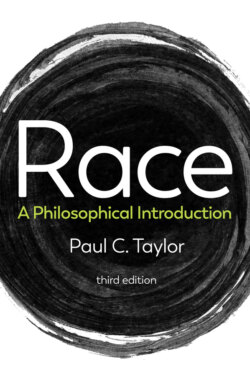Читать книгу Race - Paul C. Taylor - Страница 21
1.8.1 Politics and context
ОглавлениеI mentioned above that I will quickly come to focus on (what we misleadingly call) “the West,” eventually settling on the English colonies in North America that became the United States. I adopt this increasingly narrow focus for reasons I keep repeating: the English, with some notable assistance from the Spanish, produced the distinctive form of race-thinking that laid the groundwork for contemporary US conceptions of race. And the USA is the context that I’ve chosen for this inquiry into a necessarily context-bound subject.
In light of this commitment to a situated analysis of race, it is important to be clear about the political context. Modern US racialism takes shape in the context of the European colonial project and of white supremacist politics. This is not to say that all white people, whoever white people turned out to be, believed they were superior to non-whites (and that some whites were superior to others) and sought to build society in the image of that idea. It is to say that modern societies were by and large built around the idea of white superiority and the commitment to using this idea as a basic principle of social organization. Enough people embraced this idea and this commitment, and sank them into society at deep enough levels, to make them profound and abiding influences on modern life. (Some scholars would say that the historical role I’ve given white supremacy here should instead be assigned to anti-blackness. We’ll return to this.)
It is important to say clearly that the dominant forms of modernity were not just racialist but also white supremacist and colonialist in order to signal clearly the degree to which race and modern political life are intertwined with each other. The centrality of modern politics to race and of race to modern politics can get lost in the back and forth of philosophical debate with surprising ease. More to the point, it is easy to lose sight of the way race connects to specific forms of politics, rather than simply to a free-floating risk of racial animus. I mean to keep this political context for race-thinking squarely in view.
